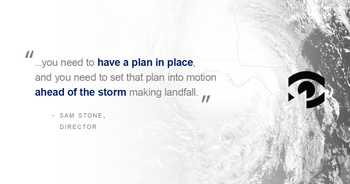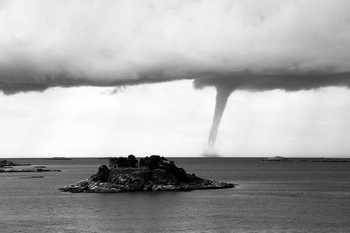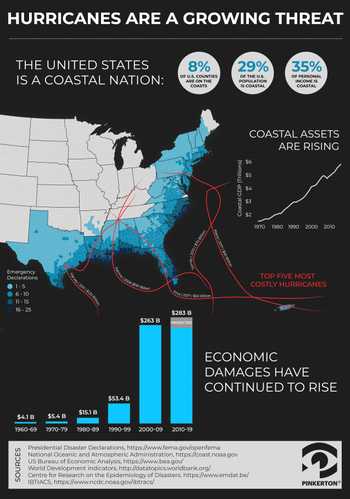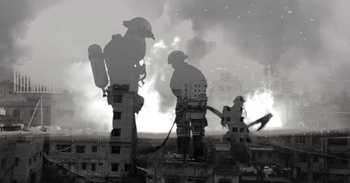In October 2018, Hurricane Michael made landfall in the Florida Panhandle as an unprecedented Category 4 with maximum sustained wind speeds of 140 knots (161 mph) and a minimum pressure of 919 Mb, making it the third most intense hurricane to make landfall in the United States. The rapid intensification, fast-moving storm hurtled through the panhandle into southern Georgia, where it was downgraded to a Category 3 hurricane. As it moved northeast through the Carolinas and Virginia, it was downgraded once again to a tropical storm. A mere 48 hours after landfall, the storm reached the Atlantic Ocean, leaving in its wake catastrophic damage from wind, rough waves, and storm surge.
The storm was later re-categorized as a Category 5.
“There have been a disproportionate number of 100-year storms almost every year for the past several years affecting the Gulf Coast and Atlantic Coast states,” said Pinkerton Director Sam Stone. “We have had boots on the ground responding to every major natural disaster in the Southeast. And we were there before, during, and after Hurricane Michael.

“Our goal is to have Pinkerton protective agents in place prior to tropical force winds making landfall. As such, we were watching the weather channels and radars — trying to predict where this storm was going to land so we could deploy agents into affected areas,” he said.
Pinkerton assists clients prepare before Hurricane Michael
When a facility was determined to be in the path of tropical-force or hurricane-force winds, it was depopulated and evacuated, and agents were deployed to the facility 12 hours prior to landfall to shelter in place with enough supplies and gear for 72 hours — including water and food.
“We stayed in contact with our agents to coordinate the protection plan until we lost cell service and power, along with 1.2 million people in the Southern and East Coast states. But our agents were cool, calm, and collected, exactly what the Pinkerton agent is all about,” he said. “I would ask them how they were doing, and they were like, ‘We’re prepared.’”
Pinkerton in the Hurricane Michael aftermath
After the hurricane passed, agents remained at the sites not only providing physical security but also working with first responders and perhaps — most importantly — providing access control, escorting contractors and insurance adjusters, checking IDs and documenting the coming and going of authorized personnel. Since agents were on site during the storm, they documented some of the facilities’ fail points and leaks, expediting recovery and reconstruction.
“The most important thing to remember for hurricane season is you need to have a plan in place, and you need to set that plan into motion ahead of the storm making landfall,” Stone said. “Without having agents on site during the storm and aftermath, a facility becomes completely exposed once your infrastructure has been compromised. The facility’s assets and information are vulnerable until the roads are clear and the power comes back on. In addition, resources become severely limited in a state of emergency. Not having a plan and resources can make business continuity even more difficult.”
Pinkerton is experienced in addressing natural disasters and can assist with the pre-operational planning phase of a disaster as well as the execution of the plan with experienced, local protection agents.





